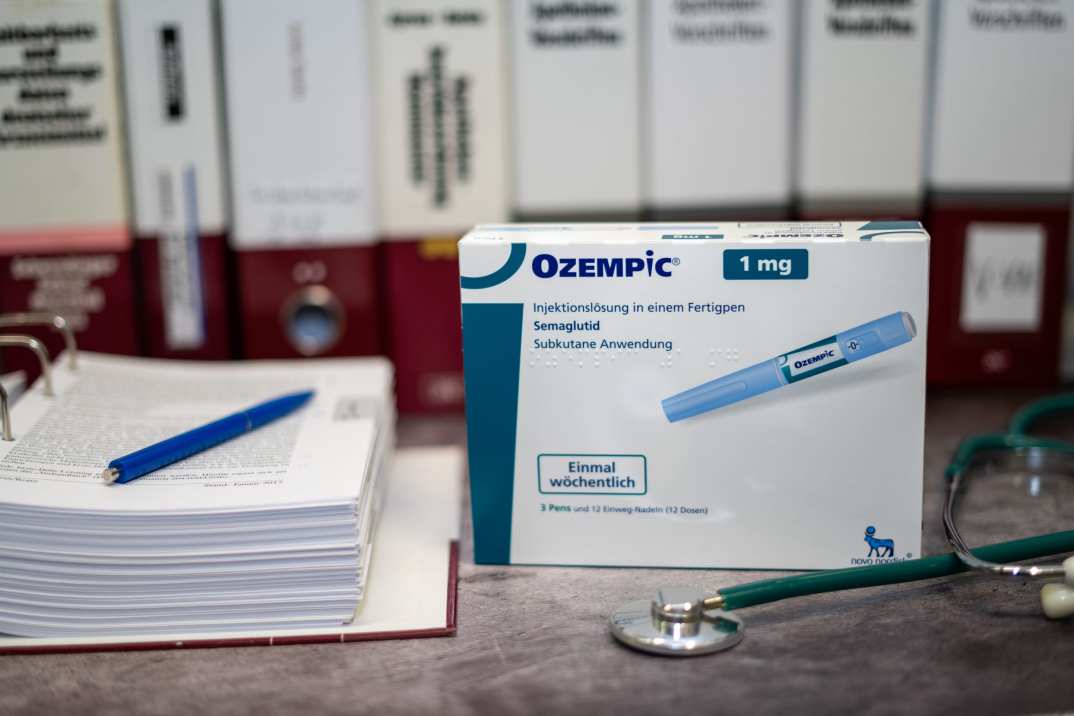Last year saw a surge in obesity drug overdoses. Here’s what to know and tips to avoid making the same mistake.
OPINION: As more people use obesity medications like Ozempic and Wegovy to achieve their weight-loss goals, so does the number of those who will misuse the drug.

Editor’s note: The following article is an op-ed, and the views expressed are the author’s own. Read more opinions on theGrio.
There is such a thing as too much of a good thing, and many seeking weight loss are learning that first-hand.
The surging popularity of semaglutide for weight loss (available as Ozempic and Wegovy) comes with a stark reality: Some individuals, seeking accelerated results, choose to deviate from prescribed dosages. This gamble, taking too little or too much, raises serious concerns about the potential for misuse.
According to America’s Poison Control Centers from January 2023 to November 2023 there were nearly 3,000 calls related to semaglutide — 94% of which were solely related to this substance — nearly twice the number reported in 2022. Even more, many weight-loss drug overdoses likely go unreported, making it difficult to get a clear picture of the problem. This lack of data makes it harder to assess the risks and keep people safe.
As more people use weight-loss medications to achieve their anti-obesity goals, so does the number of those who will misuse the drug. Dr. Sharon Giese, a board-certified plastic surgeon in Manhattan and creator of the Elective Weight Loss (EWL) Program, thinks there are multiple contributing factors.
“The vast majority of semaglutide overdose reports are accidental, either due to patients not waiting a week between doses or by misunderstanding dosing instructions,” said Giese, who acknowledges that there may be other reasons at play, like one-size-fits-all dosing guidelines and obtaining the drug from the unaccredited compounding pharmacies looking to make a quick buck.
Recommended Stories
“The guidelines for these medications call for step-up dosing every single month. I find that it’s best to custom dose a patient and not jump up every month. In my practice we titrate our dosage to appetite,” said Giese. “Secondly, and it might be a little more cynical, but it’s in Big Pharma’s best interest to amp people on medication when our goal should be to use these medications to achieve a desired result and get people off medications.” Giese also acknowledges the growing black market for weight-loss drugs that often offer “too good to be true” pricing to naive customers.
Signs of Ozempic overdose
Semaglutides mimic the hormone GLP-1, a hormone released by the gut after eating that stimulates the production of insulin, which slows gastric emptying and lowers blood sugar.
Overdoing semaglutide can trigger a rapid drop in blood sugar (hypoglycemia), leading to headaches, fatigue, anxiety, a racing heart and digestive woes like nausea, vomiting, diarrhea and early satiety.
Subtle nausea could be a red flag for weight-loss drug overdose, Giese warns. This early symptom, often dismissed as minor, can precede more dramatic ones like vomiting and diarrhea. Giese observes this most frequently after dose adjustments but assures that it usually resolves with an anti-nausea medication like Zofran. Thus far, no weight-loss drug overdoses have proven to be fatal.
Staying hydrated is key for safe weight-loss drug use, Giese emphasizes. Sipping fluids throughout the day helps mitigate dehydration, a potential contributor to adverse reactions. If you experience persistent gastrointestinal discomfort like bloating, belly ache or diarrhea, seek immediate medical attention, urges Giese, as these could be signs of a more serious issue.
Serious, but overblown?
Despite the rise in news reports citing increases in Ozempic and Wegovy overdoses, Giese believes the reports are overblown and fears that people who need these drugs the most won’t consider weight-loss medication, despite its proven positive impact on cardiovascular and mental health.
For Black communities, concerns about potential overdoses and unequal access to weight-loss drugs pose significant barriers. Access disparities, with Black people being four times less likely to receive a prescription, according to data shared exclusively with CNN by Epic Research Data, combined with the fear of overdose, may discourage Black communities from considering weight-loss drugs as part of their treatment plans.
Giese warns that the pursuit of a specific weight-loss target, common among both health care providers and patients, can overshadow the crucial fact that individuals have unique needs and responses to treatment.
“I don’t have a weight-loss goal for patients because everyone is different. My patients are tasked with making behavioral changes like eating a healthy diet and exercising, and weight loss is added as a part of a holistic plan,” Giese told theGrio. “I titrate everything to appetite suppression and weight loss … and make sure we’re seeing real sustained weight loss … not rapid, sometimes dangerous, weight loss,” she adds.
Giese also stresses the many inherent and built-in motivations for people NOT to overdose, like the costs of treatment and fear of side effects. “People are making a monetary commitment to meet their goal so they’re motivated to not waste the medication. They also don’t want to feel like crap. So for many people, the motivation for people to overdose is just not there. People will feel like crap,” said Giese.
Preventing overdose
To curb the risk of overdose, precise medication dosing tailored to individual needs is crucial. This means regular check-ins with a health care provider, both in person and virtually, to ensure the dosage effectively curbs appetite and promotes weight loss without pushing the boundaries of safety.
Dr. Giese’s personalized approach extends to even the syringes she provides. As the medication is injectable, she tracks the size and number provided to each patient, offering an extra layer of safety and tailored care. “We never let people have a syringe, bigger than the exact amount needed for their dose,” Giese shared.
With concerns about dosage errors swirling around non-accredited pharmacies, pre-filled pens offer a beacon of hope, ensuring that patients receive the right amount of weight-loss medication.
Still, maintaining proper dosage is a delicate balance, even for Giese’s experienced patients. Despite safety measures, lapses in adherence happen. “I had to fire a patient because they were dipping into the bottle and sharing it with their husband,” Giese says. But Giese assures us that these cases are rare. “That was one in 300 patients. Most patients are motivated to lose weight because they have tried other ways unsuccessfully and there’s a monetary incentive to play by the rules.”
Despite reports, weight loss meds are a net positive
It’s clear that there is a valuable role for these drugs in weight-loss plans, if patients and health care providers keep open communication with one another, especially as goals change.
The unexpected challenges that have emerged for those seeking to shed pounds remind us all of the importance of balance, moderation and personalized strategies. For vulnerable communities, particularly Black communities, navigating weight-loss drugs requires careful consideration of overdose risks without sacrificing potential benefits in addressing obesity.
Beyond the immediate impact of weight-loss drugs, Dr. Giese reminds us that sustainable weight management hinges on a comprehensive approach. These medications can offer crucial support in the initial stages, but lasting success lies in building healthy habits for the long haul.
“After a while, people naturally make changes to their eating habits. The body does a great job keeping you in check because you’ll feel full faster and won’t want to eat as much,” Giese adds. “Then you add the benefits of exercise. And as you see the results you become more inclined to eat healthier. Be healthier. People truly embrace the positive changes they’re making, and that’s what it’s really all about.”

Dr. Shamard Charles is the executive director of graduate studies in public health at St. Francis College and sits on the Medical Advisory Board of Verywell Health (Dot Dash-Meredith). He is also host of the health podcast, The Revolutions Within Us. He received his medical degree from the Warren Alpert Medical School of Brown University and his Masters of Public Health from Harvard’s T.H. Chan School of Public Health. Previously, he spent three years as a senior health journalist for NBC News and served as a Global Press Fellow for the United Nations Foundation. You can follow him on Instagram @askdrcharles or Twitter @DrCharles_NBC.
Never miss a beat: Get our daily stories straight to your inbox with theGrio’s newsletter.








